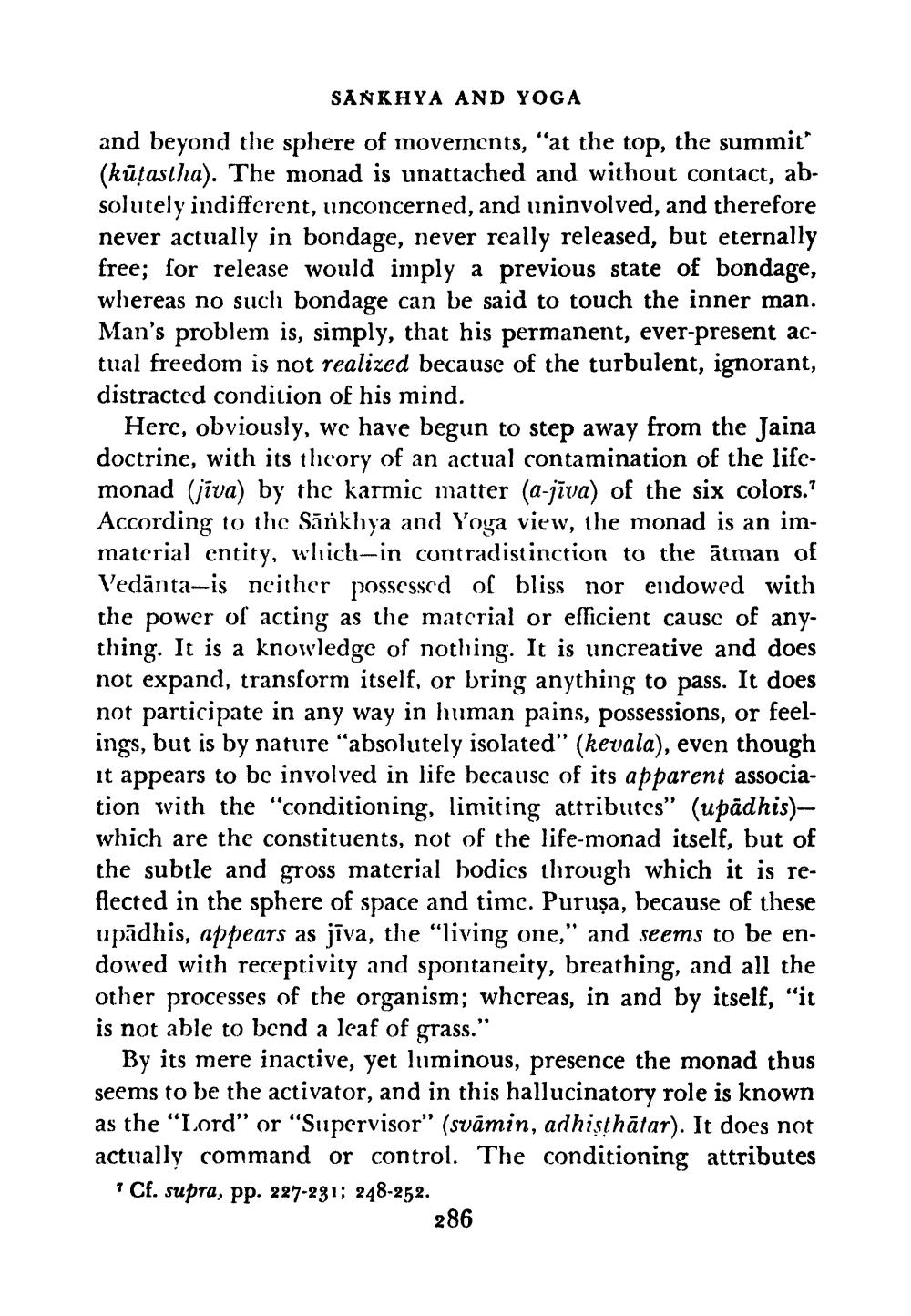________________
SANKHYA AND YOGA
and beyond the sphere of movements, "at the top, the summit" (kūțastha). The monad is unattached and without contact, absolutely indifferent, unconcerned, and uninvolved, and therefore never actually in bondage, never really released, but eternally free; for release would imply a previous state of bondage, whereas no such bondage can be said to touch the inner man. Man's problem is, simply, that his permanent, ever-present actual freedom is not realized because of the turbulent, ignorant, distracted condition of his mind.
Here, obviously, we have begun to step away from the Jaina doctrine, with its theory of an actual contamination of the lifemonad (jiva) by the karmic matter (a-jīva) of the six colors.? According to the Sānkhya and Yoga view, the monad is an immaterial cntity, which-in contradistinction to the ātman of Vedānta-is neither possessed of bliss nor endowed with the power of acting as the material or efficient cause of anything. It is a knowledge of nothing. It is uncreative and does not expand, transform itself, or bring anything to pass. It does not participate in any way in human pains, possessions, or feelings, but is by nature "absolutely isolated" (kevala), even though it appears to be involved in life because of its apparent association with the "conditioning, limiting attributes" (upādhis)which are the constituents, not of the life-monad itself, but of the subtle and gross material bodies through which it is reflected in the sphere of space and timc. Puruşa, because of these upādhis, appears as jīva, the “living one," and seems to be endowed with receptivity and spontaneity, breathing, and all the other processes of the organism; whcreas, in and by itself, "it is not able to bend a leaf of grass."
By its mere inactive, yet luminous, presence the monad thus seems to be the activator, and in this hallucinatory role is known as the “Lord" or "Supervisor" (svāmin, adhisthātar). It does not actually command or control. The conditioning attributes Cf. supra, pp. 227-231; 248-252.
286




